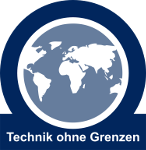Environmentally Friendly Disposal of Biomedical Waste at three Nepalese Hospitals
About the Project

What's the problem?
Usually, infectious hospital waste in Nepal is burned in pits by pouring flammable liquids over it. The temperatures reached by this method are not high enough to sterilize the waste completely. In most cases, leftover waste will remain. This waste along with its germs and bacteria will be distributed around the hospital property from wind and animals. In the case of rain, the ground water may become contaminated as well. All of this increases the risk of infection for patients, hospital staff, visitors and neighbours. Technology without Borders (Technik ohne Grenzen - TeoG) faces this issue and provides a solution.How to solve it?
Based on knowledge and social connections from a previous project in Nepal (Environmentally friendly disposal of biomedical waste in Bahunipati), this project will deliver three incinerators for burning biomedical waste in the towns of Baluwa, Kattike Deurali and Manthali. We will use the well-tried two chamber incinerator model of TeoG. Due to the two combustion chambers as well as the chimney with a height of 4 to 5m, constant temperatures of more than 800°C are verifiably reached (peak temperatures up to 1050°C). As a result, the biomedical waste is sterilized, almost no carbon black and toxic gases arise (dioxin window between 300 and 600°C) and the waste volume is minimized. The ash can be burried without any concerns. The incinerators used in the previous project provided a burn rate of up to 20kg/h per incinerator. A team of two to three project members will be sent to Nepal in Spring 2018 for approximately eight weeks. In preparation for the TeoG team's arrival, local hospital staff will build the foundations for the incinerators as well as buy the necessary materials. Our team will be in contact with the local partners before the arrival in Nepal in order to plan the building process of the incenerators. Also, our team will teach the hospital staff how to use, maintain and repair the incinerators so they can effectively and independently handle it in the future. Additionally, we will train and teach suitable and interested locals how to plan, build, use, maintain and repair future incinerators for biomedical waste at Nepalese hospitals. We believe in the principal of helping people so they can help themselves in the future. It is our goal to provide a long-term improvement solution for the hospital waste issues in Nepal. This project is mainly funded by the German Rotary Volunteer Doctors e.V. as well as fundraising. We highly appreciate your donation to the bank account of our regional group Erlangen or via Betterplace. Thank you very much! For any questions or comments, please do not hesitate to contact us via email at ed.goet@lrefeok.sakulGallerie
Information
Project number
Project Leader
Lukas Köferl
Regional Groups
Project members
Lukas Köferl
Maximilian Deckelmann
Anna-Lena Treutlein
Luca Frericks
Lara Hachmann
Sophie Hutzler
Thilo von Mansberg
Eva Menges
Oliver Ostermeyer
Raman Upreti
Project Category

Timespan
April 2025 - now
Project stage
News
No entries.
